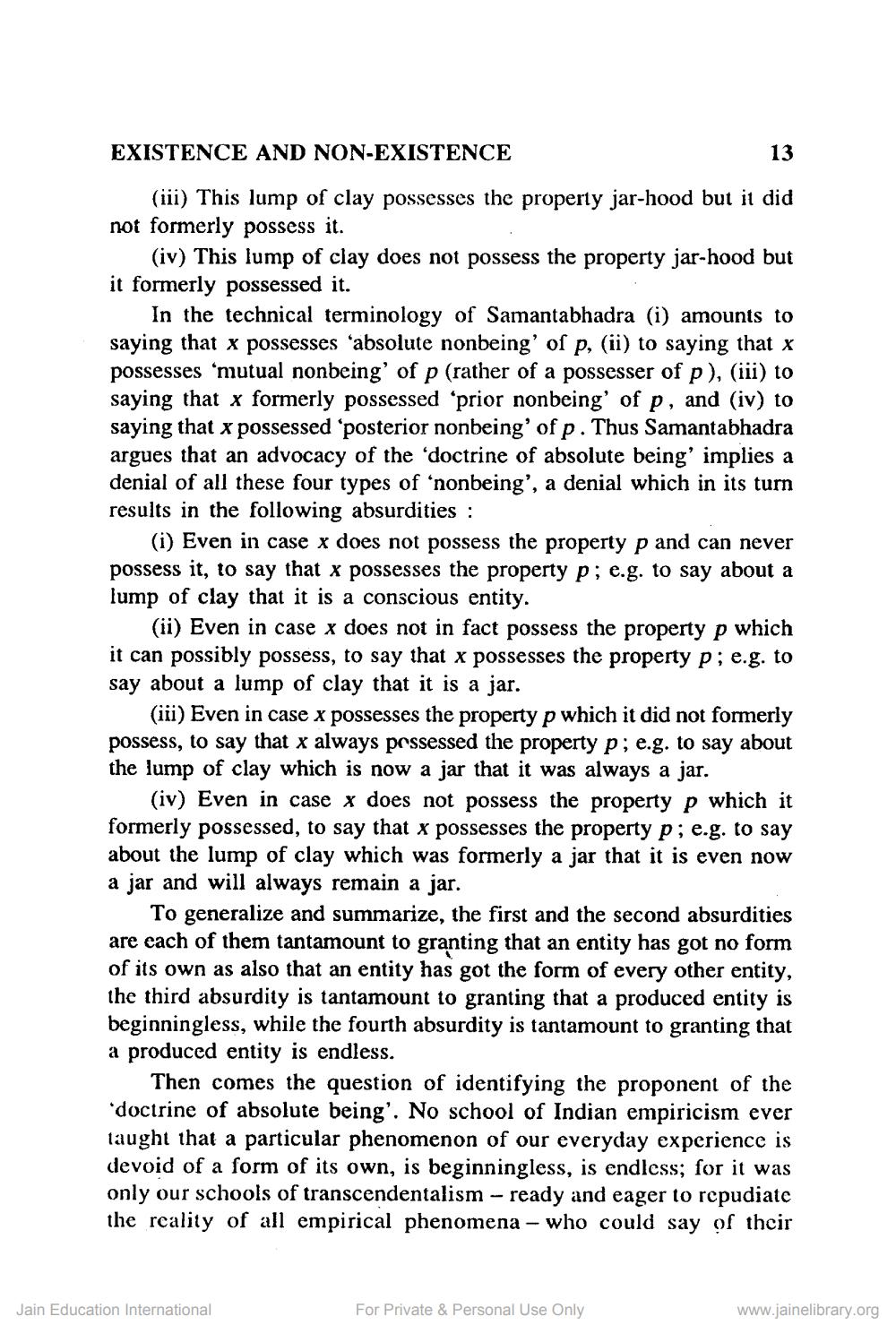________________
EXISTENCE AND NON-EXISTENCE
13 (iii) This lump of clay possesses the property jar-hood but it did not formerly possess it.
(iv) This lump of clay does not possess the property jar-hood but it formerly possessed it.
In the technical terminology of Samantabhadra (i) amounts to saying that x possesses ‘absolute nonbeing' of p, (ii) to saying that x possesses 'mutual nonbeing' of p (rather of a possesser of p), (iii) to saying that x formerly possessed 'prior nonbeing' of p, and (iv) to saying that x possessed ‘posterior nonbeing' of p. Thus Samantabhadra argues that an advocacy of the 'doctrine of absolute being' implies a denial of all these four types of ‘nonbeing', a denial which in its turn results in the following absurdities :
(i) Even in case x does not possess the property p and can never possess it, to say that x possesses the property p; e.g. to say about a lump of clay that it is a conscious entity.
(ii) Even in case x does not in fact possess the property p which it can possibly possess, to say that x possesses the property p; e.g. to say about a lump of clay that it is a jar.
(iii) Even in case x possesses the property p which it did not formerly possess, to say that x always possessed the property p; e.g. to say about the lump of clay which is now a jar that it was always a jar.
(iv) Even in case x does not possess the property p which it formerly possessed, to say that x possesses the property p; e.g. to say about the lump of clay which was formerly a jar that it is even now a jar and will always remain a jar.
To generalize and summarize, the first and the second absurdities are each of them tantamount to granting that an entity has got no form of its own as also that an entity has got the form of every other entity, the third absurdity is tantamount to granting that a produced entity is beginningless, while the fourth absurdity is tantamount to granting that a produced entity is endless.
Then comes the question of identifying the proponent of the doctrine of absolute being'. No school of Indian empiricism ever taught that a particular phenomenon of our everyday experience is devoid of a form of its own, is beginningless, is endless; for it was only our schools of transcendentalism - ready and eager to repudiate the reality of all empirical phenomena - who could say of their
Jain Education International
For Private & Personal Use Only
www.jainelibrary.org




